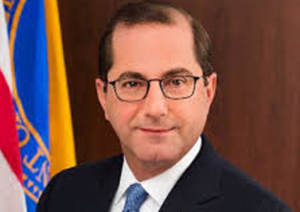MACPAC Meets
The Medicaid and CHIP Payment and Access Commission met for two days last week in Washington, D.C.
The following is MACPAC’s own summary of the sessions.
 The February 2020 MACPAC meeting opened with a continuation of MACPAC’s examination of Medicaid’s role in maternal health, when Medicaid officials from Michigan, New Jersey, and North Carolina joined the Commission to discuss how their states are addressing maternal morbidity and mortality.* The Commission plans to include a chapter on maternal health in its June 2020 report to Congress. Commissioners later turned their attention to policy options for improving enrollment in the Medicare Savings Program.
The February 2020 MACPAC meeting opened with a continuation of MACPAC’s examination of Medicaid’s role in maternal health, when Medicaid officials from Michigan, New Jersey, and North Carolina joined the Commission to discuss how their states are addressing maternal morbidity and mortality.* The Commission plans to include a chapter on maternal health in its June 2020 report to Congress. Commissioners later turned their attention to policy options for improving enrollment in the Medicare Savings Program.
The Commission later took a deep dive into value-based payment in Medicaid managed care. This three-part session began with findings from a series of interviews with state officials, managed care organizations, and other stakeholders aimed at understanding how states use managed care to promote payment reform, conducted by MACPAC contractor Bailit Health. Then, representatives from three of these organizations shared their reactions to the findings and talked about how value-based payment models are working in practice.* The session concluded with Commissioners’ perspectives on the study’s findings and the panelists’ reactions to them, and possible next steps.
The final session of the afternoon continued a line of inquiry begun at the October 2019 meeting: third-party liability coordination between Medicaid and TRICARE. MACPAC estimates that almost 1 million Medicaid enrollees have primary coverage through TRICARE, which provides health benefits for military personnel, military retirees, and their dependents. Commissioners explored making recommendations in the June report to improve coordination between the two programs.
On Friday, the Commission returned to the theme of improving care for dually eligible beneficiaries, looking more closely at the rise of so-called dual-eligible special needs plan (D-SNP) look-alikes and how changes in the Medicare Advantage market are affecting efforts to integrate care. Commissioners also reviewed a rule proposed in February that would, among other things, restrict the growth of look-alikes.
Following that session, the Commission discussed draft recommendations to improve integration of Medicare and Medicaid benefits for dually eligible beneficiaries. The February meeting wrapped up with a discussion of a forthcoming rule expected to affect the Medicaid eligibility determination process.
Supporting the discussion were the following briefing papers:
- State Medicaid Initiatives to Improve Maternal Health
- Improving Participation in the Medicare Savings Programs: Decisions on Draft Recommendations for the June Report to Congress
- State Strategies to Promote the Use of Value-Based Payments in Medicaid Managed Care
- Medicaid and TRICARE: Third-Party Liability Coordination
- How Changes in the Medicare Advantage Market Are Affecting Integration of Care for Dually Eligible Beneficiaries: Analysis and Comments on Proposed Rule
- Improving Integrated Care for Dually Eligible Beneficiaries: Decisions on Recommendations to be Included in June Report to Congress
- Forthcoming Rule on Program Integrity and Eligibility Determination Processes
Because they serve so many Medicaid and CHIP patients – more than the typical hospital – MACPAC’s deliberations are especially important to Pennsylvania safety-net hospitals.
MACPAC is a non-partisan legislative branch agency that provides policy and data analysis and makes recommendations to Congress, the Secretary of the U.S. Department of Health and Human Services, and the states on a wide variety of issues affecting Medicaid and the State Children’s Health Insurance Program. Find its web site here.
 Included in this month’s edition are articles about:
Included in this month’s edition are articles about: The regulation, proposed by the Centers for Medicare & Medicaid Services in November would impose new limits on the ability of states to finance their share of their Medicaid spending, potentially jeopardizing provider payments and the ability of high-volume Medicaid providers to operate without suffering great losses.
The regulation, proposed by the Centers for Medicare & Medicaid Services in November would impose new limits on the ability of states to finance their share of their Medicaid spending, potentially jeopardizing provider payments and the ability of high-volume Medicaid providers to operate without suffering great losses. In its letter to members of the state’s congressional delegation, SNAP wrote on behalf of private Pennsylvania safety-net hospitals that
In its letter to members of the state’s congressional delegation, SNAP wrote on behalf of private Pennsylvania safety-net hospitals that While testifying before the Senate Appropriations Committee’s Subcommittee on Labor, Health and Human Services and Education, Health and Human Services Secretary Alex Azar acknowledged that the administration’s proposed FY 2021 would eliminate the enhanced rate at which the federal government matches state funds used to serve individuals who enrolled in Medicaid through the Affordable Care Act’s Medicaid expansion provision. That enhanced rate calls for the federal government to pay 100 percent of the costs associated with the Medicaid population during the first year of Medicaid expansion, eventually scaling down to 90 percent after 2020. Nationally, the federal government’s matching rate for the pre-expansion population is 57 percent; that matching rate would not be affected by this proposal.
While testifying before the Senate Appropriations Committee’s Subcommittee on Labor, Health and Human Services and Education, Health and Human Services Secretary Alex Azar acknowledged that the administration’s proposed FY 2021 would eliminate the enhanced rate at which the federal government matches state funds used to serve individuals who enrolled in Medicaid through the Affordable Care Act’s Medicaid expansion provision. That enhanced rate calls for the federal government to pay 100 percent of the costs associated with the Medicaid population during the first year of Medicaid expansion, eventually scaling down to 90 percent after 2020. Nationally, the federal government’s matching rate for the pre-expansion population is 57 percent; that matching rate would not be affected by this proposal. In her commentary Verma rebuts these criticisms, maintaining that the proposed regulation seeks to ensure that states pay their fair share of their Medicaid partnership with the federal government, raise that share in a manner consistent with federal guidelines, and spend it in ways that fall within regulatory standards. She also maintains that the regulation will foster greater transparency and accountability for the Medicaid program.
In her commentary Verma rebuts these criticisms, maintaining that the proposed regulation seeks to ensure that states pay their fair share of their Medicaid partnership with the federal government, raise that share in a manner consistent with federal guidelines, and spend it in ways that fall within regulatory standards. She also maintains that the regulation will foster greater transparency and accountability for the Medicaid program. In a news release, Governor Wolf said that
In a news release, Governor Wolf said that